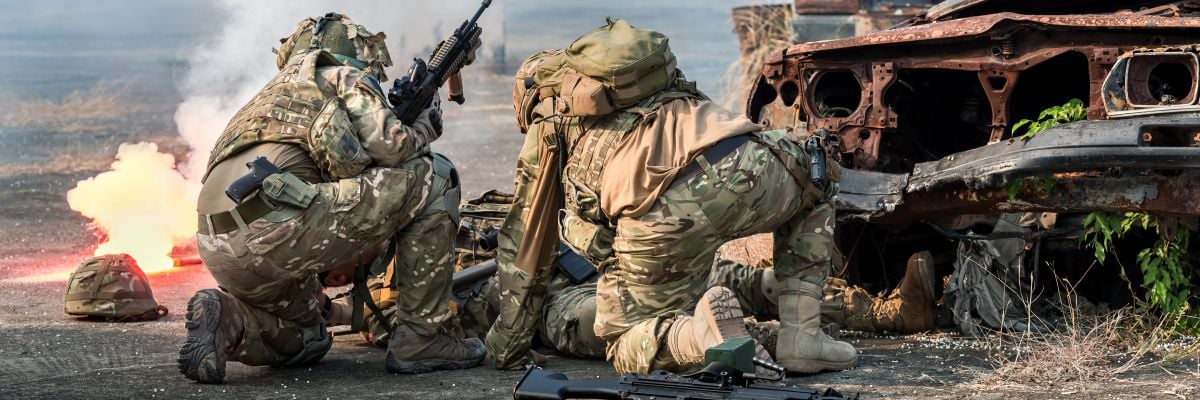
In the midst of last year’s debate in the United States over abortion and Communion, Joseph Cardinal Ratzinger wrote a confidential memorandum entitled Worthiness to Receive Holy Communion: General Principles. It was leaked to the press, and its genuineness was confirmed by the Holy See. Catholics who wanted to see Catholic pro-abortion politicians held accountable for their reprehensible stance found much of what Ratzinger said heartening, but one statement in the memorandum caused some of them considerable perplexity:
Not all moral issues have the same moral weight as abortion and euthanasia. For example, if a Catholic were to be at odds with the Holy Father on the application of capital punishment or on the decision to wage war, he would not for that reason be considered unworthy to present himself to receive Holy Communion. While the Church exhorts civil authorities to seek peace, not war, and to exercise discretion and mercy in imposing punishment on criminals, it may still be permissible to take up arms to repel an aggressor or to have recourse to capital punishment. There may be a legitimate diversity of opinion even among Catholics about waging war and applying the death penalty, but not however with regard to abortion and euthanasia.
This statement was a response to those who argue that if Communion should be withheld from politicians who dissent from the Church’s teaching on abortion, it then also should be withheld from politicians who disagree with John Paul II’s statements regarding the use of capital punishment or who approve of wars (such as the Iraq War) that the pontiff appears to oppose. Individuals on the other side of this debate maintain that, in the eyes of the Catholic Church, war and the death penalty are incommensurate with abortion.
As John Paul II pointed out in his encyclical Evangelium Vitae, direct abortion is intrinsically evil and can never be justified under any circumstances (cf. EV 62). This means that it is not left to the prudential judgment of individuals whether to have or perform a direct abortion. It is always wrong, and to support this action is to put oneself at odds with the teaching of the Church.
But there are situations where war and the death penalty are moral (cf. Catechism of the Catholic Church 2309, 2267). It is left to the prudential judgment of those who have responsibility for such matters to determine whether the conditions in a particular case warrant their use. Consequently, to disagree with the Pope on these issues is to disagree with his prudential judgment, not with Church doctrine.
Even though in his position the pope is not charged with decisions about waging war or executing criminals, deference is certainly due to his prudential judgment. But to disagree with his prudential judgment in a particular case does not amount to dissent from Church teaching and does not trigger the provisions of canon law (e.g., CIC 915) that would result in Communion being withheld.
This much is indicated in what Cardinal Ratzinger wrote. But he went further by referring to “a legitimate diversity of opinion” regarding war and capital punishment. What is the basis for this statement? And how far does this legitimate diversity go?
State Decides, Church Advises
The reason there can be a diversity of opinion on the decision to go to war is that the application of the Church’s just-war criteria is left to the prudential judgment of those responsible for the decision: the leaders of the state rather than the Church. Though the pontiff can counsel political leaders on such decisions, it is beyond his mandate to make such decisions, and his opinions in this area do not decisively govern the state’s actions.
Further, the evaluation of some of the conditions of the Church’s just-war doctrine relies on intelligence and military knowledge that the Church does not possess. Spies know more about hostile nations and what attacks they may be about to launch than does the Church. Similarly, generals know more about what can be achieved on the battlefield and at what cost.
But what about a disagreement with the pope on the level of policy regarding war?
Here there is a factor that limits legitimate diversity of opinion: The Church has a set of conditions that it proposes must be met in order for a decision to wage war to be just. Though the application of these criteria is a matter of prudential judgment, the criteria themselves are not. They have been proposed—since the time of Augustine, who is credited with originating them—as matters of moral doctrine.
Thus far there has been no definitive formulation of these criteria. The Catechism offers one formulation (see sidebar), but the Catechism is not infallible, so one can disagree with the way the conditions are formulated in the Catechism.
Nor is the Catechism an exhaustive, technical survey of Catholic teaching. In keeping with the nature of a catechism, it teaches in summary fashion and leaves things out. Some have noted that the Catechism’s formulation of the just-war conditions does not include all of the considerations that the Church has brought to bear on this question.
Nevertheless, the conditions enumerated in the Catechism represent an important formulation of the Church’s just-war doctrine, which is theologically certain, though not definitively phrased. As a result, a fundamental disagreement with these criteria would amount to dissent from Catholic doctrine.
A politician might quibble with the Catechism’s phrasing of the circumstances or urge something from historical Catholic just-war teaching that the Catechism omits. He might feel that the conditions for a just war are met more frequently than churchmen generally suppose. But to go beyond this and to disagree fundamentally with the criteria would be to go beyond legitimate diversity of opinion and into dissent.
Judges and Juries Decide
As with war, legitimate diversity of opinion on capital punishment is founded on prudential judgment. The Church acknowledges that the state has the right to execute criminals in certain circumstances (cf. CCC 2266). Whether or not those circumstances are met in a particular case belongs to the competence of the judicial system and not to the Church. Judges and juries are the ones who must apply their prudential judgment to the facts of a particular case.
But if there is a legitimate diversity of opinion on particular cases, does this extend to the level of policy? Why does Cardinal Ratzinger indicate that one could disagree with the highly restrictive policy proposed by John Paul II regarding the use of the death penalty?
One possible reason is that the Church does not have conditions for the imposition of the death penalty that have been articulated in comparable detail, precision, and force to those of its just-war doctrine. There are circumstances that one could propose as established principles of Catholic doctrine on this topic: The person to be executed must be guilty of an offense, his guilt must be morally certain (i.e., proven “beyond a reasonable doubt”), and his offense must be sufficiently grave to be proportionate to the loss of his own life.
If one disagreed with these points, then one would be going beyond legitimate diversity of opinion. But those who disagree with John Paul II on capital punishment typically do not disagree with these principles.
What is always important, as the Congregation for the Doctrine of the Faith pointed out in its Instruction on the Ecclesial Vocation of the Theologian, is “the willingness to submit loyally to the teaching of the magisterium” (IEVT 24).
The document goes on to say that “when it comes to the question of interventions in the prudential order, it could happen that some magisterial documents might not be free from all deficiencies. Bishops and their advisors have not always taken into immediate consideration every aspect or the entire complexity of a question” (ibid.).
Weighing What We Know
Applying this to recent statements about the death penalty, we find the following:
1. The circumstances in which the death penalty should be applied have been discussed in two highly authoritative documents: an encyclical and the Catechism. In neither case was the death penalty the principal topic of the work in question but something only briefly dealt with. If, by contrast, a whole encyclical had been devoted to the topic, then much greater weight would be added to the discussion.
2. These discussions have not been repeated with great frequency in highly authoritative documents. Most mentions of the topic have been in documents of much lesser weight (e.g., papal telegrams, Vatican press statements), and many of these merely urged clemency in particular cases and did not offer sustained discussion of the criteria that must be met for capital punishment to be legitimate.
3. The manner of phrasing in the two major statements is tentative. If one looks at the language used in regarding the death penalty and compares it to the words used regarding abortion, the difference is stark. On abortion the pontiff is thunderous: “By the authority that Christ conferred upon Peter and his successors, in communion with the bishops . . . I declare that direct abortion, that is, abortion willed as an end or as a means, always constitutes a grave moral disorder, since it is the deliberate killing of an innocent human being” (EV 62). If he had added “and define” after “I declare,” this would have been a new infallible definition.
But on capital punishment the Holy Father appeals only to changes in societal attitudes and the penal system and concludes that cases where capital punishment is required “are very rare if not practically non-existent” (EV 56). His juxtaposition of two possibilities indicates a tentativeness regarding how frequent such cases are.
The material offered regarding the death penalty also is phrased in an incomplete manner. His discussion of the topic is only a little more than 300 words long in English. The Pope advances several propositions but does not elaborate them with supporting arguments and answers to objections, nor does he appeal to his papal authority to settle the matter. He also refrains from mentioning, much less repudiating, several considerations from traditional Catholic thought that might be brought to bear on the matter.
The Catechism has little to say on the subject and largely quotes Evangelium Vitae.
4. Most fundamentally, the matter we are dealing with is a prudential one involving “contingent and conjectural elements,” such as the most effective way to deter crime and prompt the repentance of criminals. The Pope appeals to changes in the prison system, the severity and efficacy of which vary from country to country. Even then he acknowledges that there are cases where the death penalty can be warranted. Neither “very rare” nor “practically non-existent” means “non-existent,” and the question of whether one is facing such a case is inescapably prudential.
In view of these considerations, it is easier to understand why Cardinal Ratzinger would state that there is a “legitimate diversity of opinion” among Catholics regarding war and capital punishment. Good Catholics should not make the mistake of thinking there is not.



